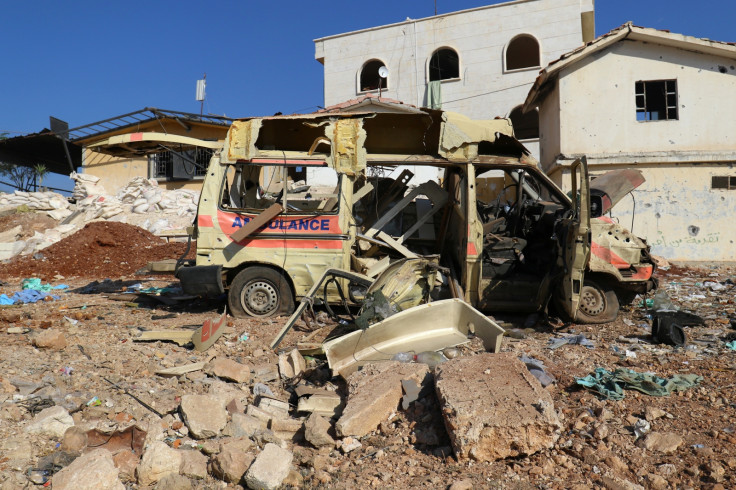Hospitals in eastern Aleppo knocked out by heavy bombardment, officials say
Foreign Secretary Boris Johnson calls the air strikes on civilians and hospitals 'sickening'.
Days of relentless air strikes on Syria's eastern Aleppo have left the rebel-held area without a single hospital operating to full capacity, the Syrian American Medical Society said on Saturday (19 November).
The World Health Organisation (WHO) said all makeshift hospitals are out of service but reports indicate that some of the medical facilities are still functional and that residents were too afraid to use them.
White House National Security Adviser Susan Rice said the US condemned the air strikes "in the strongest terms" and called on Russia to take measures to stop the violence.
"The United States again joins our partners ... in demanding the immediate cessation of these bombardments and calling on Russia to immediately deescalate violence and facilitate humanitarian aid and access for the Syrian people," she added.
At least 61 civilians were killed in dozens of air raids, barrel bombs and artillery rounds, according to the Syrian Civil Defence who are also known as White Helmets. The attacks led by the Syrian government resumed on Tuesday, (15 November) after a three-week pause. Ground attacks were allegedly launched on militant positions on Friday.
"This destruction of infrastructure essential to life leaves the besieged, resolute people, including all children and elderly men and women, without any health facilities offering life-saving treatment ... leaving them to die," Aleppo's health directorate said in a statement to Reuters news agency.

Foreign Secretary Boris Johnson said the reports of air strikes on civilians and hospitals were "sickening" and called for a return to diplomacy.
According to Reuters, the Russian and Syrian governments denied targeting hospitals and civilian infrastructure. Russia called for a ceasefire in October and on Saturday said it was only going to target groups that are not observing the ceasefire.
Doctors Without Borders said there had been more than 30 hits on hospitals in eastern Aleppo since July.
"Doctors are few and medical supplies are depleted, with no possibility of sending more supplies in," it said. Rescuers were able to bring hospitals back into operation previously but the lack of supplies is so severe that they are unable to do so this time.
According to the UN, at least 700 civilians were killed in the east in air strikes and rocket fire had left dozens dead in the west by the end of October. Aleppo, once Syria's commercial hub, has been divided into rebel-held east and regime-controlled west since 2012.
© Copyright IBTimes 2025. All rights reserved.





















